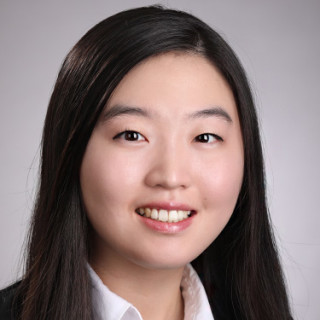
One thing I remembered as a newly-minted medical student was listening to a physician-administrator as he emphasized our school’s credo of training the next generation of physician-pluses.
By “physicians-plus” he meant physicians who could straddle medicine with another human endeavor with the goal of fostering innovations. This meant joining the hyphenated heap that consisted of physician-scientists, physician-writers, physician-CEOs, physician-politicians, physician-chefs, physician-yogis — you name it.
At first, I scoffed at the idea. Medicine — full with lifelong overachievers — was a field that already demanded 110 percent of one’s effort, and the physician’s burden was already becoming untenable to many who were burning out under heavy patient loads and administrative demands.
Plus, we already had a shortage of physicians in many underserved areas, did we really need more doctors to reduce their clinic hours and call days to pursue nebulous, big-picture goals?
The answer, I would now argue, is yes.
Why Do We Need More Physician-Pluses?
During medical school and residency, trainees are taught to function within a defined context in the realm of their respective specialties — learning to treat conditions, work with other healthcare providers — all the while operating efficiently under a structured bureaucracy. However, medicine does not exist in a vacuum. It is a field that touches upon every single human institution — social, legal, technological, spiritual, political, etc.
Furthermore, the determinants of our patients’ health oft transcend what modern medicine is able to address. Taking these factors into consideration, it doesn’t make sense that the scope of a physician’s practice ought to be limited within the confines of a hospital or the clinic. Rather, we want willing and capable physicians to take their experiences into other environments — government, businesses, the arts, to name a few — for the benefit of patients and the future of medicine.
Already, many physician-pluses have become prominent — even celebrated — in our society. In literature and writing, we have luminaries like Atul Gawande, Lisa Sanders, and Abraham Verghese who unpack the human and systemic complexities of medicine and health for the layperson. In the current 115th United States Congress, we have 14 physician congressmen and senators, the most well-known being Rand Paul. Regardless of their political inclinations, don’t we want physician input on some of the important conversations about health care?
And we want more physicians at the helm of health-related companies and hospitals. The best hospitals within U.S. News and World Report’s Best rankings are overwhelmingly helmed by CEOs with MDs and DOs, and multiple research papers have found that expert leaders are associated with higher performance and employee satisfaction.
How Can We Train More Physician-Pluses?
One way of training future generations of physician-pluses is through medical training. At my institution, students are required to complete a Scholarly Concentration, a structured program combining academic scholarship and experiential education. Most of the concentrations are traditionally associated with medicine, such as bioengineering, clinical research, data-driven medicine, but the program also also offers concentrations that touch upon other, more big-picture facets, such as policy research, medical education, biomedical ethics, and medical humanities.
Students then have the opportunity put their elective education into practice through Medical Scholars, an program that provides up to five fully-funded quarters during medical school. More than half of each entering class takes advantage of this program to take a gap year to conduct research, start a business, advise state lawmakers, and write manuscripts for their novels. For many of us, the program allows us to pour what we’ve learned into a medicine-plus passion project.
While not every medical school have the financial means to organize programs like the Scholarly Concentration or Medical Scholars, giving students space to engage their interests is important in fostering wellness and even coming up with interesting ideas in medicine.
More established physicians can begin their journey into becoming physician-pluses by making time and a plan to pursue their interests. For instance, aspiring physician-writers could start writing articles on their blog sites and local papers and join writing groups and workshops improve their craft and credentials. For aspiring physician-politicians, being involved in state and national medical associations and local branches of the government will allow them to see how policy works and foster important connections for the future.
For other non-typical “physician-plus” combinations, doctors can reach out to other physicians as well as non-physicians who have already walked a similar path, figure out the necessary steps for success, and start fulfilling those obligations.
Who’s Going To Pay For The Physician-Pluses?
The most realistic hurdle in the path to becoming a physician-plus is the cost. To put it crudely, under the most common forms of reimbursement, the time that physicians are not spending on patient care is time that physicians are not being paid for. That means that as of current, the privilege of becoming a physician-plus are limited to those who have the financial luxury and the time to pursue their “plus” passions.
Once I got to the wards, I was thrilled to learn that my medical school did not just pay lip service to the idea of training physician-plus leaders; they employed them as well. During clerkships, I frequently rubbed elbows with physician-entrepreneurs, physician-scientists, physician-novelists, and even a physician-chaplain who demonstrated that it was possible to blend their medical background into another high-level passion. Under a supportive administration, a few select group of physicians had been able to carve out their unique specialties and interest. Rather than exhausting these physicians, their “plus” fields re-invigorated their clinical responsibilities because the doctors were combining medicine with their passions.
Many academic institutions already provide a stable (albeit reduced) salary for flexibility and protected time for physicians who pursue traditional “plus” professions like physician-scientists, physician-educators, and even physician-quality-improvement-officers. Hospitals should be open to providing more funding and protected time to support physicians who have creative health projects in mind. Medical societies could organize workshops and mixers for those who are willing to work toward pushing the boundaries of medicine in non-traditional ways.
Likewise, businesses, firms, think tanks, and institutions should be encouraged to seek the expertise of physician-pluses who have the capacity to change healthcare. For instance, McKinsey, a management consulting firm, employees more than 150 medical doctors internationally, many of whom work in health-related projects.
Overall, with their years of demonstrated work ethic, book smarts, and patient experience, physicians have so much to offer to other fields to work together in improving the practice of medicine and patient care. Given the limitations of our current system, now is the time that physicians extend their know-how beyond the clinic and the hospital.
Yoo Jung Kim is a medical student at Stanford University and author of What Every Science Student Should Know (University of Chicago Press). Her articles have appeared in the Washington Post, The Mercury News, The Seattle Times, and KevinMD. She is a 2018–2019 Doximity Author.







